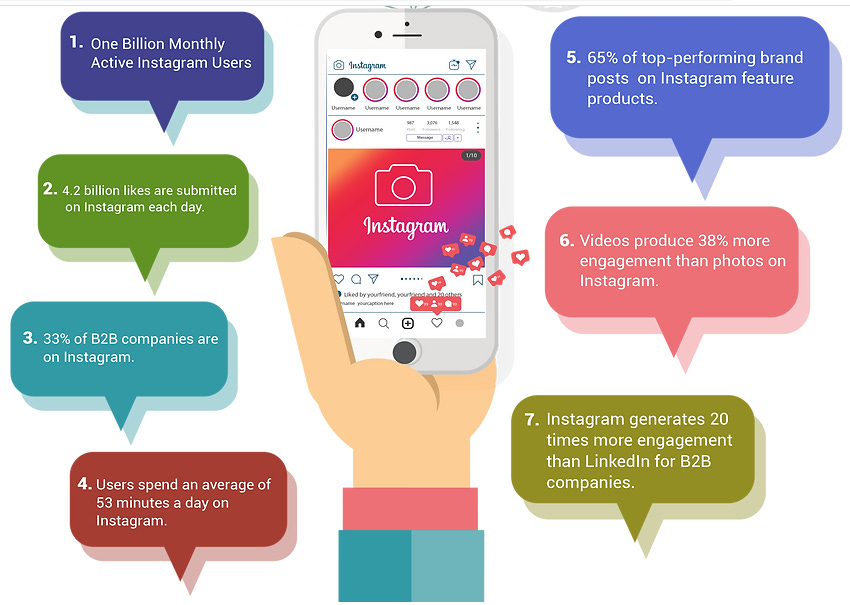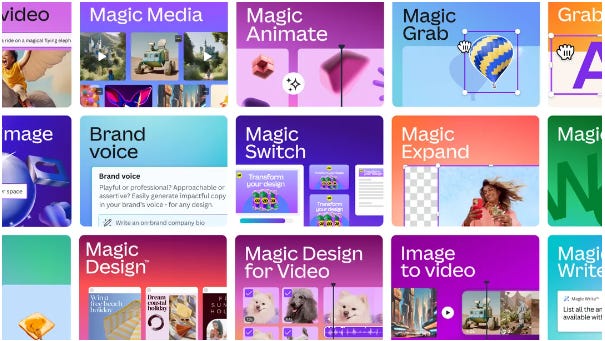The AI Revolution - Latest Developments and Insights
The AI Revolution: The Latest in Robotics, Healthcare, Ethics, and Global Development
Artificial intelligence is advancing rapidly across industries, from supply chain automation to personalized medicine. This month's edition of The AI Revolution dives into the key developments propelling AI innovation on the global stage.
Warehouses of the Future: Amazon Deploys AI-Powered Robot Workers
Amazon recently announced the rollout of intelligent robot workers called "Amazon Dot" across its US warehouses. Standing at 5 feet tall, these autonomous humanoid robots utilize advanced computer vision and AI to identify and lift inventory bins up to 50 pounds.
Dot represents a significant milestone in Amazon’s robotics expansion, with over 500,000 robots already deployed across the company’s operations. While Amazon maintains its robot workforce will “work collaboratively” with human employees, concerns persist about potential job losses stemming from increased warehouse automation.
It remains to be seen how extensively Amazon will integrate Dot into its mammoth distribution network. However, the e-commerce giant’s growing investment in robotics reflects a broader trend of supply chains increasingly leveraging AI and automation. Retail powerhouses like Walmart are piloting similar technologies to keep pace with rising consumer demand.
As robot adoption accelerates, governments may need to implement policies to support workforce transitions and ensure economic benefits are shared inclusively. Either way, intelligent machines are fast becoming a staple across the world’s factories and fulfillment centers.
Mastercard and UAE Partner to Catalyze AI Innovation
On the public-private front, Mastercard recently announced a new collaboration with the UAE aimed at boosting nationwide AI development and deployment. The partners signed a Memorandum of Understanding (MoU) outlining joint initiatives to implement AI across priority sectors including finance, healthcare, education, transportation, and more.
Key focus areas range from personalized banking with AI virtual assistants to AI-guided medical diagnostics and treatment. The MoU also includes upskilling programs to build Emirati talent in AI fields. This partnership exemplifies how the public and private sectors can join forces to nurture AI ecosystems poised to benefit economies and societies.
The UAE is aggressively pursuing a national AI strategy, with investments in research centers, new degree programs, and innovation clusters. Mastercard’s expertise in AI solutions for banking, cybersecurity, logistics and infrastructure will complement these efforts. More public-private AI collaborations are likely as governments across the Middle East and worldwide recognize AI’s immense economic potential.
Montreal AI Startup Element AI Raises $102 Million
In startup news, Montreal-based Element AI recently closed a $102 million Series B funding round. This brings the company’s total fundraising to $257 million since its inception in 2016.
Element AI is a leading developer of AI solutions for enterprise, with clients including Unilever, LG, Intel, Gartner and Axa. Its core areas of expertise lie in computer vision, natural language processing, data fusion and predictive modeling. The fresh capital will expand R&D efforts and accelerate the deployment of tailored AI tools across sectors.
As a bastion of AI research, Canada has birthed some of the most promising AI startups worldwide. Element AI adds to this reputation, alongside names like Rubikloud in the retail space and BlueDot for infectious disease tracking. With Toronto and Montreal blossoming into AI hubs, expect more ventures and talent to emerge from Canada’s centers of excellence.
Calls for AI Regulation Mount in the UK
Across the pond, a coalition of researchers, advocates and parliamentarians in the UK are calling for stronger oversight of artificial intelligence. The group contends that AI systems are being deployed in a high-risk, “haphazard manner”, enabled by inadequate transparency and accountability.
These concerns stem partly from a recent investigation revealing the UK government’s questionable use of algorithms to make critical decisions related to welfare, immigration, and law enforcement. In one alarming case, an inaccurate face scanning algorithm influenced the denial of welfare benefits to thousands.
Citing similar examples, the expert coalition argues Britain urgently needs an AI regulatory regime focused on eliminating bias, protecting privacy, and governing acceptable use across sectors. This push for stricter controls reflects mounting apprehension about unchecked AI across Europe.
The European Commission recently proposed the AI Act, a landmark package of AI regulations including bans on certain “high-risk” applications. As governments balance innovation with oversight, regulating ethically sound AI development will remain an urgent challenge worldwide.
FBI Director Warns of China’s AI Ambitions
Geopolitical competition in AI intensified recently as FBI Director Christopher Wray warned business leaders of China’s ambitions to dominate key technologies like AI. He advised vigilance against Chinese efforts to steal intellectual property and private data that could undermine US innovation.
Director Wray emphasized the differences between an authoritarian vision of AI that strengthens control and surveillance, versus a liberal vision focused on individual liberties. This divide between AI for societal benefit versus state power will likely deepen in the coming decade.
Navigating this bifurcation while maintaining global collaboration presents complex challenges. Initiatives like the Partnership on AI unite stakeholders across borders to maximize the benefits of AI responsibly. But nationalist agendas will continue influencing how AI is governed and deployed worldwide.
Healthcare AI: Progress Against Cancer, Brain Disorders and More
On the healthcare front, researchers made strides applying AI to improve medical imaging, drug discovery and patient diagnosis:
- An Indian team developed an AI tool for better personalization on Wikipedia, analyzing user behavior to tailor content.
- Scientists in London designed an algorithm that improves brain tumor diagnosis through automated MRI analysis.
- Researchers at Imperial College London improved the accuracy of drug discovery using an AI system for computational simulations.
- Stanford and UCSF researchers created an AI model that examines medical images and records to assist with diagnosis and treatment recommendations.
As AI demonstrates growing prowess processing complex medical data, investment is pouring into startups like AiCure and Butterfly Network which weld AI and advanced sensors. Major players like Microsoft and Google are also aggressively expanding AI capabilities.
Alongside the hype, concerns remain around privacy, fairness and building trust between AI tools and patients. But thoughtful implementation of AI in areas like drug R&D, clinical decision support and personalized medicine can undoubtedly improve healthcare outcomes worldwide.
Uber Forms AI Safety Team, Anthropic Launches Friendly AI Assistant
Corporate AI development continued apace with Uber unveiling a new internal team focused wholly on AI safety. This group will develop procedures and technologies to minimize safety incidents across Uber's AI services, including autonomous vehicles.
Safety recurrence remains a key obstacle to rolling out autonomous rideshare fleets. Given the tragic fatality involving an Uber self-driving car in 2018, this safety team signifies a positive step toward accountable AI practices.
In a bid to make AI more trustworthy and harmless, AI firm Anthropic launched Claude - an AI assistant designed to have natural conversations free of toxic or biased responses. Unlike AI bots from Facebook and Google, Claude aims for maximum friendliness.
Anthropic implements a technique called Constitutional AI to imbue assistants with humanist values. Claude represents a promising advance toward the lofty goal of AI that benefits humanity. Although truly foolproof AI safeguards remain distant, companies are responding to demands for greater safety and transparency.
OpenAI Explores Content Moderation for AI Like ChatGPT
Speaking of safety, OpenAI made headlines exploring content moderation techniques to reduce harmful outputs from models like ChatGPT. Measures under consideration include password-protecting access, labeling AI-generated text and adding filters to constrain responses.
This reveals a stark tradeoff in advanced AI systems – the same capabilities enabling helpful applications also risk generating biased, toxic or false content. AI researchers are pursuing technical mitigations like human-in-the-loop learning to address this problem.
In addition to internal constraints, independent auditors may someday assess metrics like truthfulness, transparency and impartiality before AI systems are market-ready. Universities are also starting to offer training in AI ethics for aspiring developers and engineers.
Governing responsible AI acrossborders presents an enormous challenge. But initiatives like the EU’s AI Act and IEEE’s efforts to standardize AI ethics highlight promising steps in this direction.
Investment Surges in New AI Institutes and Startup Hubs
Globally, investment in AI hubs and research centers is accelerating:
- India: A national portal was launched offering AI courses along with tools to build skills for youth and industry practitioners.
- UAE: Dubai opened an AI Graduate School to train Emirati and international professionals across machine learning, data science and ethics.
- Saudi Arabia: The kingdom aims to have 30% of its workforce employed in AI roles within 10 years.
- France: President Macron unveiled a €7 billion initiative to establish France as a global AI hub, with new research centers, startups, supercomputers and training programs.
- UK: Cambridge launched a £325 million Schwarzman Center for AI Ethics and Innovation aimed at steering AI to benefit society.
- US: New AI research institutes were announced in Princeton focused on machine learning, Chicago on computer vision/robotics and San Francisco on human-AI collaboration.
Immense public and private investments are flowing into AI hubs as more nations jockey for leadership. Expect intensifying competition but also opportunities for cross-border coordination like the new AI partnership between Canada and Microsoft.
AI Promises Personalized Education but Raises Privacy Concerns
From K-12 to higher education, AI-driven tools are enabling more personalized, adaptive learning:
- Google Classroom uses AI to tailor lesson plans and assignments for students based on their strengths and weaknesses.
- Carnegie Mellon University’s AI tutoring system helps students master physics concepts through automatic feedback and guidance.
- McGraw Hill’s AI textbook supplements the core curriculum with interactive activities, assessments and multimedia tailored to each learner’s level.
As promising as these innovations appear, risks around data privacy and surveillance accompany the influx of AI in education. For instance, researchers found edtech apps like ClassDojo collecting personal data on millions of children for profit, enabled by lax regulation.
Parents, regulators and civil rights groups are appropriately questioning how student data is leveraged. Schools implementing learning analytics and AI should prioritize data transparency while preventing misuse.
Getting the balance right between personalized edtech and student privacy remains an open challenge. But with ethical ground rules, AI-enabled tools can undoubtedly help schools deliver the right lessons to the right child at the right time.
Advancing Healthcare AI Through Public-Private Partnerships
Microsoft and the government of Canada recently announced a partnership to accelerate healthcare AI focused on improved outcomes and health equity. Researchers will evaluate AI applications spanning cancer screening, mental health, elder care and more.
This collaboration exemplifies the power of public-private R&D to translate healthcare AI from theory into practice. Academic medical centers are also primed to drive progress through new partnerships, data sharing agreements, IP policies and ethics oversight.
The potential use cases are vast: AI for clinical trials optimization, automated triage in hospitals, predicting post-discharge complications, identifying social determinants impacting health outcomes and much more. But to realize this potential, stakeholders must commit to inclusive development and rigorous real-world validation.
Getting AI tools from labs to clinic remains the central challenge. But growing data stores, cross-sector collaboration and computing firepower can help make the promise of AI-enabled healthcare a reality worldwide.
Business Applications of AI: New Efficiencies and Changing Workstyles
Across the private sector, AI adoption is accelerating to drive efficiency, uncover insights from data and reimagine business processes:
- JPMorgan is using natural language processing algorithms to extract critical data points from commercial loan agreements and legal documents. This automation could boost productivity in legal review by up to 70%.
- Mitsubishi is employing AI-guided robots to assemble vehicle doors more efficiently at a Nagoya plant. The robots adjust motions based on environmental data, improving precision.
- PwC unveiled a new AI tool called the Digital Fitness App designed to provide employees with personalized learning recommendations and productivity insights.
As companies implement more AI capabilities, they will need to retrain staff and redesign workflows. Structural shifts also loom larger, as AI shoulders routine tasks. Surveys reveal most executives believe AI will not replace jobs outright, but rather augment roles and generate new ones.
Realizing AI's benefits while smoothly adapting organizations will require focus from leaders. Incorporating human feedback into AI systems and aligning them with company values will further bolster trust.
Concerns Around Generative AI Spreading Misinformation
Despite big strides, controversies continue embroiling emergent AI like chatbots and generative image creators. Most recently, businesses, lawmakers and the public have fixated on AI's propensity to spread mis/disinformation.
Tools like ChatGPT sometimes output false content or plagiarised passages which users then disseminate online. And AI image/video generators can create fake media manipulated to deceive. Critics argue these systems require stronger safeguards before deployment.
In response, some companies are exploring technical measures like content labels and metadata to flag synthetic content. Legal scholars also advocate updating intellectual property laws for the AI age. Longer-term solutions may involve algorithms that check facts and provide transparent sourcing.
Finding the right balance between AI innovation and sensible oversight remains a complex equation with major real-world stakes. But with collaborative multistakeholder efforts, AI can be guided positively to enhance knowledge and creativity.
The Road Ahead: Striking the Balance Between AI Progress and Control
As this newsletter illuminates, artificial intelligence breakthroughs are arriving at a dizzying pace. But realizing AI's immense potential requires grappling with emerging risks and challenges. Those designing and deploying AI carry a grave responsibility to minimize harm throughout the research, development and production cycle.
Examples already clearly show AI's susceptibility to bias, toxicity, polarization and deception. Without sufficient forethought, AI could improperly sway elections, enable state censorship or lead autonomous vehicles dangerously astray.
Simultaneously, excessive regulation enacted without nuance risks severely hampering lawful AI applications delivering social benefits. But methodical, evidence-based policies developed jointly by scientists and lawmakers can help foster AI for good.
The road ahead remains complex. But the future is not predetermined. With openness, accountability and adherence to humanist principles, AI can empower our most ambitious dreams, instead of our worst fears. The stakeholders shaping the AI revolution still have the opportunity to write a new story; our collective wisdom and values must guide the narrative.










